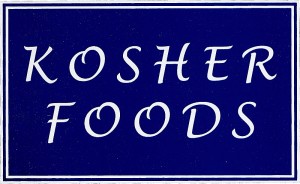What is the heart and spirit behind the biblical dietary laws? I will, in part, attempt to answer this question the following brief teaching.
The Genesis creation account records that YHVH Elohim made man in his own image (Gen 1:26). As such, the first humans, Adam and Eve, had spiritual communion with their Creator. Though man fell quickly to the temptation to sin, which separated him from a sinless, set-apart and righteous Creator, YHVH has desired to redeem man from the power of sin to be set-apart (holy or in Heb. kadosh) as he is set-apart (e.g. Lev 11:44).

Israel was redeemed from YHVH’s judgment against sin when they sacrificed the lamb on Passover and painted the blood on the door posts of their homes. YHVH then immersed Israel in the Red Sea (a picture of baptism for the remission of sins) and led them to the foot of Mount Sinai. YHVH revealed his Torah-truth (his instructions, teachings and precepts in righteousness) to the nation of Israel from Mount Sinai so that they could become a set-apart (kadosh) kingdom of priests (Exod. 19:6). He was showing them the pathway of righteousness so that after having been redeemed by the blood of the lamb—a direct prophetic picture pointing to Yeshua the Lamb of YHVH slain from the foundation of the world—they could have fellowship with him by avoiding sinning by walking in the straight and narrow path of righteousness.
Part of the walking in a loving relationship with a righteous and totally set-apart (kadosh) YHVH involves keeping his commandments as Yeshua said in John 14:15. To know and to love YHVH is to obey his commandments (1 John 2:3–6). Those who love him and back up their belief in him with the actions of obedience (faith without works is dead, Jas 2:14–26) are better off than the demons who believe in Elohim only, but do not back up their belief with obedience to YHVH’s righteous commands. Those who love and obey YHVH are called set-apart ones or saints. Scripture defines saints as those who keep (i.e., observe or do) the Torah commands of YHVH and who also have the testimony of faith of Yeshua, the Messiah, Savior and Redeemer of mankind (Rev 12:17 and 14:12). Those who obey (hear and do) YHVH’s Torah commands will be called the greatest in the kingdom of Elohim while those who disregard the Torah and its commands will be called the least—so says Yeshua in Matthew 5:19!
Keeping YHVH’s dietary laws as outlined in the Torah is a foundational aspect of living a righteous and set-apart lifestyle. If one expects to be a member of the king-priest class in YHVH-Yeshua’s future kingdom, one must begin preparing for this role by keeping YHVH’s Torah in spirit and in truth (as Yeshua taught us in the Sermon on the Mount). Continue reading →


